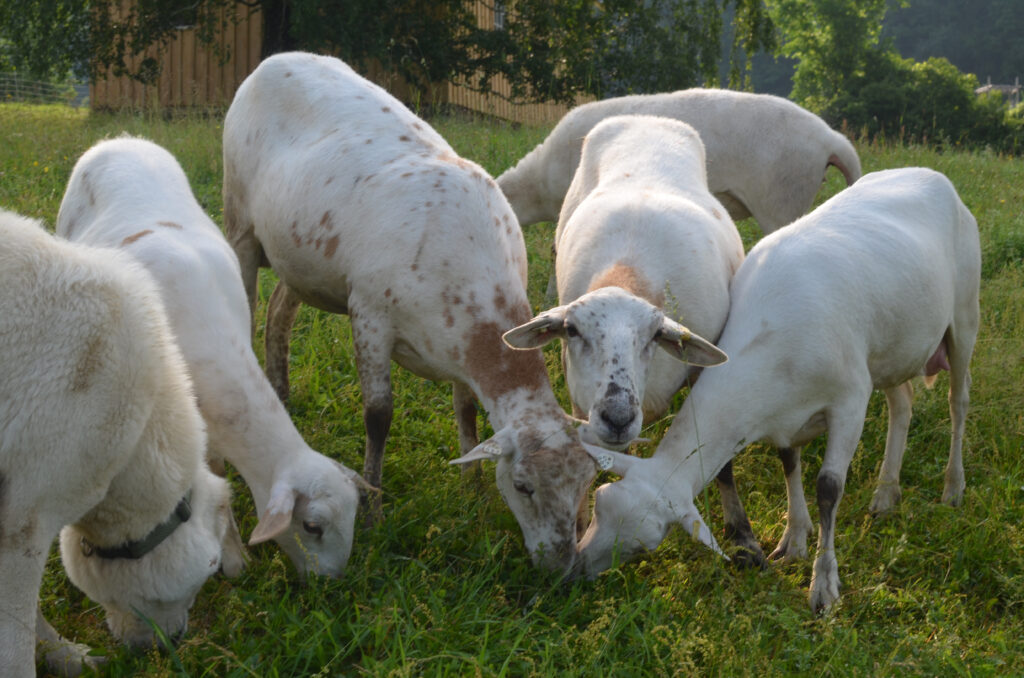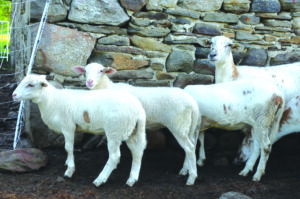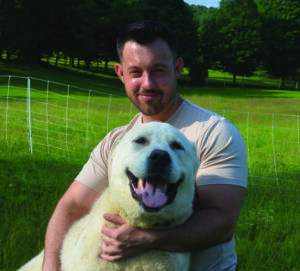Super Sheep?
Can good genetics help ag businesses
be good environmental stewards?
A farm in Middlefield is on the cutting edge
By KEVIN LIMITI • Special to www.AllOTSEGO.com

MIDDLEFIELD – Agriculture is often blamed for a negative impact on climate change. However, at a farm near Cooperstown run by twins Owen Weikert and Dr. Ben Weikert, that perception is exactly what they are working to change.
The Katahdin sheep are selectively bred by studying their genetic makeup in order to calculate things like maternal ability, how to create sheep that need less shearing and less food, and to reduce herd size.
Owen Weikert said that upstate agriculture is at a “tipping point” and that dairy farms have been “really decimated.”
“A lot of people are interested in getting out of the cattle business,” Weikert said. Therefore the new way of raising livestock might be the future of agriculture for not only Upstate but the entire country, he said.
By selecting different DNA, it is used to find out how the biological process of the animals interact with each other, and learn how to introduce beneficial characteristics into livestock that will allow breeding to be easier.
Cloning is a completely different process.

Weikert’s use of selective breeding is important because they can use fewer sheep to do more, and the hope is that they can reduce their carbon footprint at the same time.
“Agriculture is a revolution,” Weikert said. “We’re looking for a way to make a regenerative environment.”
To get the genetics from the sheep, they take a tissue sample from the ear. Afterwards, the DNA is sent to the lab where it is extracted and analyzed for correlations.
“We’re getting to understand how their individual genetics play together,” Weikert said.
He said that by doing this, they are able to make more accurate breeding decisions.
“It’s not just about having sheep that look good,” Weikert said; It is also really good for consumers.
“(Customers) want something that is raised naturally,” said Weikert, who has customers as far away as Germany. “They’re really low maintenance.”
Weikert grew up in Iowa and said “each animal is an opportunity to do better.” He said Upstate New York is a great place to raise livestock.
“I really believe that people in this area give a damn and want to do the best with the resources that they have,” Weikert said.
Overall, Weikert said he is optimistic about the future of agriculture in Upstate.

“Even in this area, there’s a lot of cool agricultural stuff that’s going on,” Weikert said. “If we can keep raising the bar on genetics, I just think it’s a benefit to everyone.”
Michael Moffat, who owns the farm, said that the process of selective breeding was making an impact and that enterprising farmers in the area have been doing a lot of interesting things.
“They have such an exciting business,” Moffat said. “And what they want to do in the end is great for the planet.”
Moffat said the process of selective breeding recognizes the genetic make up for the sheep.
“This sheep in Idaho has this gene we want our sheep to have,” Moffat said. “When they open up a book of sheep, what they’re looking at is their DNA. That is what they’ve gotten their doctorate in.”
Editor’s Note: Michael Moffat is an editorial board member of The Freeman’s Journal, Hometown Oneonta and AllOtsego.com.

